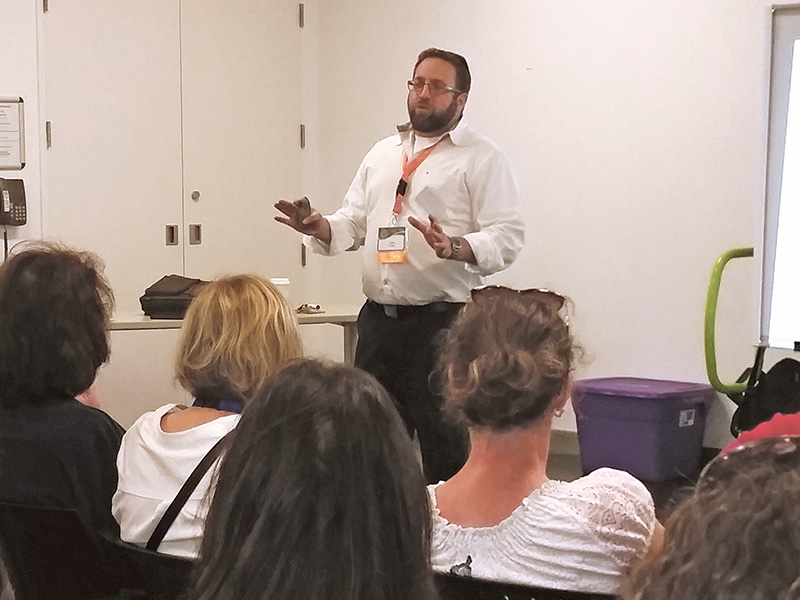Hundreds gathered at the all-ages Limmud FSU event, hailed as the only event in Toronto that engages the Russian-Jewish and Israeli community together through education and the arts.
The annual, volunteer-run conference, held Sept. 11 at the Schwartz/Reisman Centre in Vaughan, offered 40 lectures, workshops and panel discussions by more than 30 speakers with expertise in art, Jewish culture, religion, history, politics, education and business, as well as special programming for kids, a Russian-language session in each time slot, and a vendor fair.
In one session, Rabbi Rafi Lipner, senior rabbi at Shaarei Tefillah Congregation, former Hebrew studies teacher at Anne and Max Tanenbaum Community Hebrew Academy of Toronto, and founder of the House, a young adult drop-in learning centre, offered his wisdom about the three keys to a successful relationship.
The married father of eight said love and marriage, like any major part of life, can and should be viewed through a Jewish lens.
He said the first key is to determine what’s Jewish about successful relationships and to ensure you’re accessing the right information. He said Judaism, with its 5776 years of research, puts heavy emphasis on love and relationships, and is an excellent source of wisdom.
“Our entire religion starts with a story about relationships [Adam and Eve]… The entire first book of the five books is about relationships… The Torah is a powerful lens through which to look at the world.”
The second key is to determine why the topic is important and worthy of deep reflection. He said people tend to study and focus on areas of their lives they consider important, such as health and careers, but he asked why people don’t put the same effort into learning how to forge successful relationships.
“If you had a business venture and someone told you that you had a 50 per cent chance of going bankrupt, you would think really hard before entering into it. No one wants to go into business with a product that they think isn’t going to work,” Rabbi Lipner said.
The third key is understanding the topic. If you have the wrong idea about what love is and what it means, you won’t get to where you want to be, he said.
He broke down the Hebrew word for love, ahava, to its root, hav, which means “to give.”
“I have to give to someone as much as I would give to myself. That is the essence of love.”
He said he doesn’t like phrases such as “relationships are about give and take” and “compromise, ” which mean that “no one gets what they really want, but you figure out a way where you both kind of lose.”
When it comes to give and take, since the root of the word ahava is to give, “I have to be 100 per cent committed to giving to that individual… If I knew that their main goal is how to improve my life and my main goal is how can I improve theirs, that relationship is on a rock-solid foundation.”
In another session, Paul Reale, founder and director of Mindbridge Education and a lecturer in the Christianity and Culture program at the University of Toronto, spoke about the role parents must play in their children’s education.
He said when he was a kid, he felt school was structured like a prison, with students “surrendering their will to the chain of command. Other people know what you should be studying. Don’t tell us, we’re going to tell you. You were never taught to measure your self-worth. You needed to know what you were worth from your teacher.”
He said there’s a distinction between schooling and education, with schooling tending to be based on what society needs – what skills and jobs need to be filled by the next generation.
Reale put the onus on parents to fill in the blanks in their children’s education and urged them not be complacent.
“You need to meet their teachers. You need to build a rapport with them, because you want the teacher to be in contact with you,” he said, otherwise, you may find yourself in damage-control mode once report cards come around.
Reale said many school-age children lack confidence and are scared to make mistakes, adding that parents need to instil in their children a desire to excel, high expectations, and a solid work ethic
